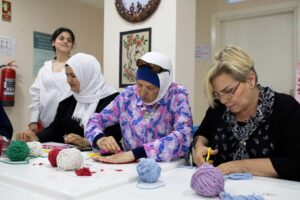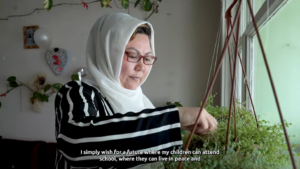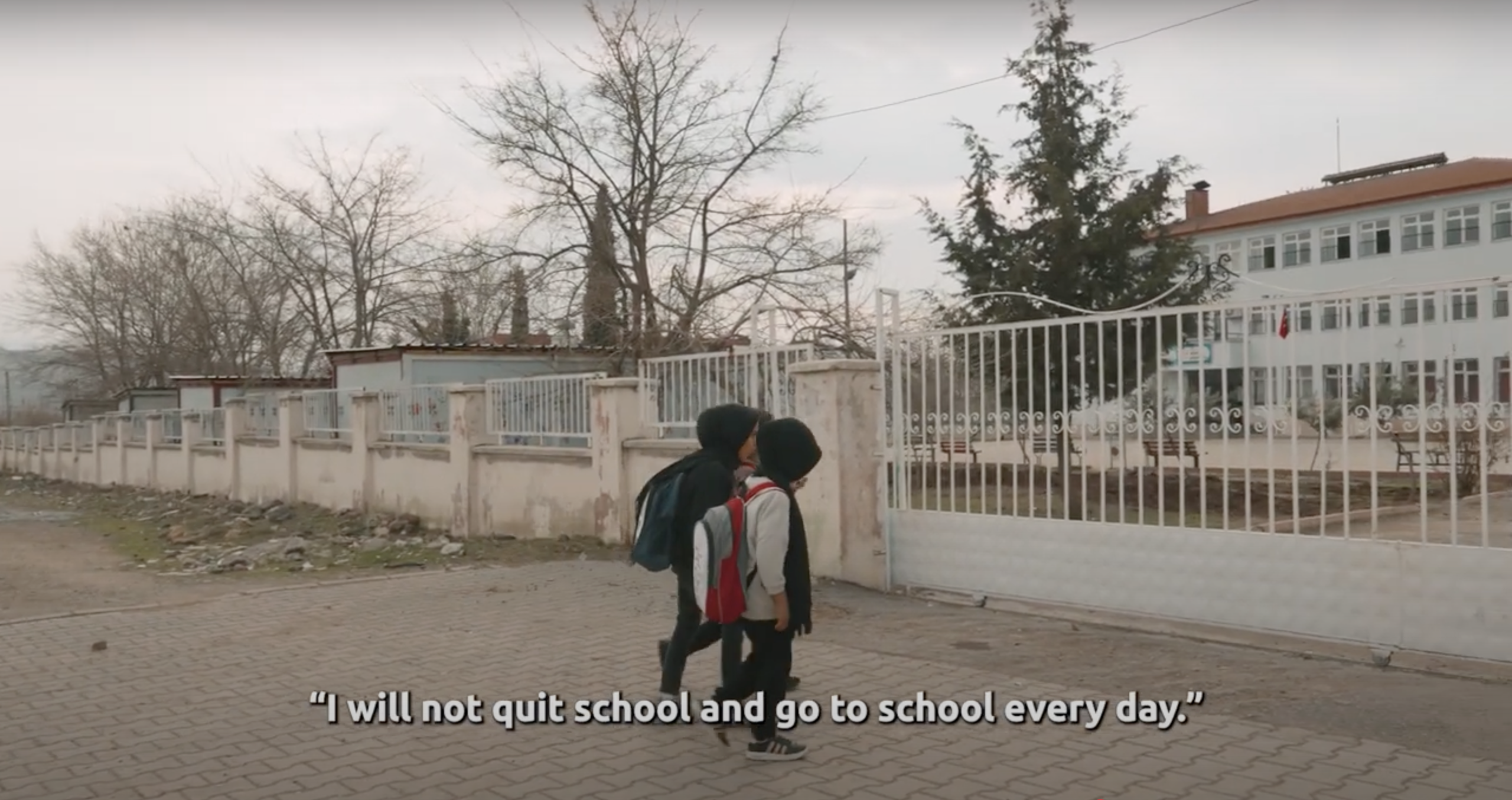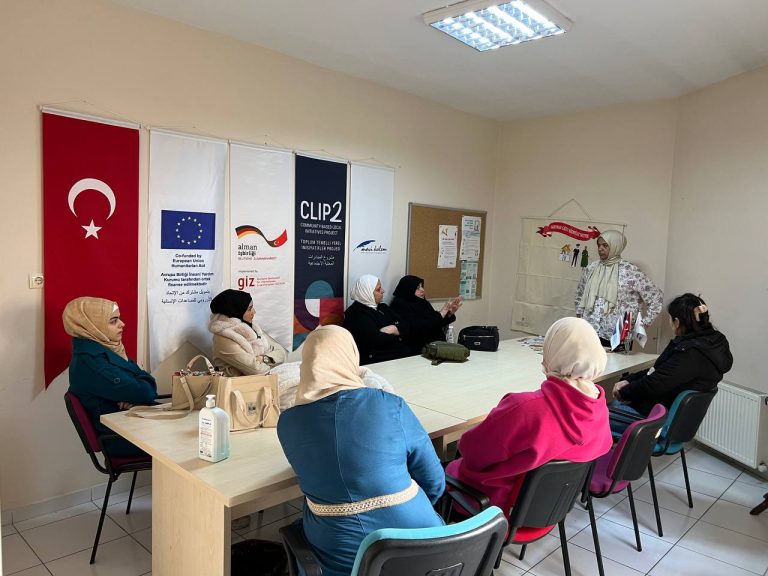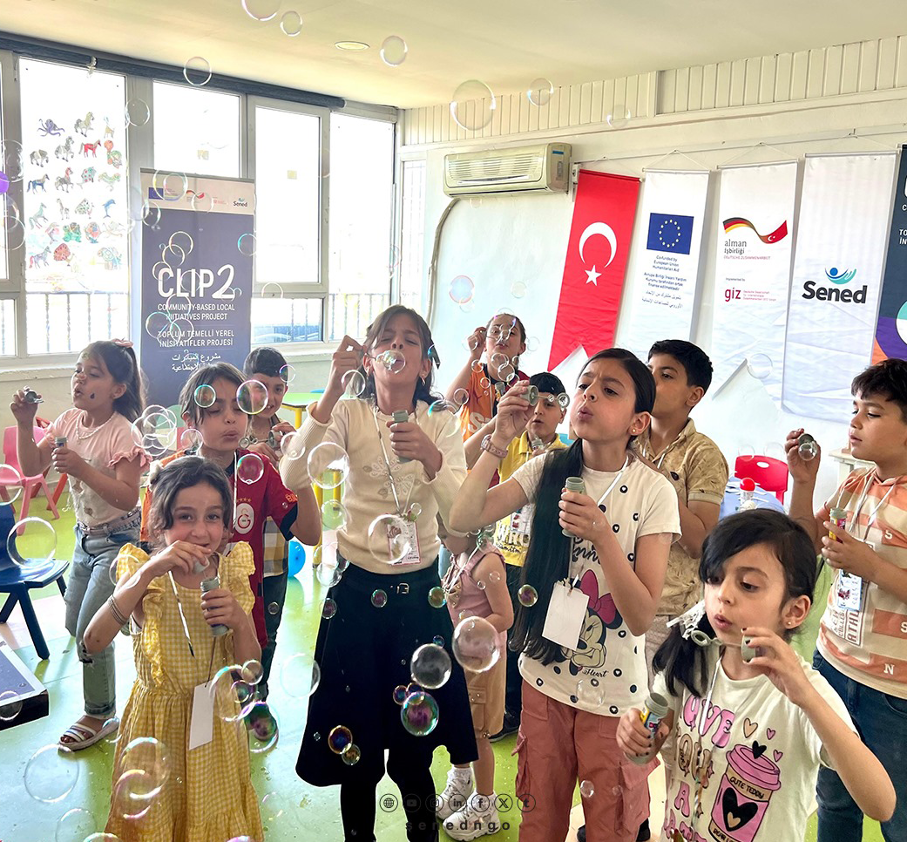Saher was born in 1999 in Syria. When she was in high school, internal conflicts intensified in the neighbourhood where she and her family resided. In 2014, she fled to Türkiye with her family after being threatened with death.
Saher was unable to continue her education in Türkiye after having to stop because of the war and migration in Syria. In 2020, she married a Syrian and then had a son, who is now almost two years old.
She visited the HRDF Esenler Multi-Purpose Support Centre in 2021, where she received psychosocial support and participated in a variety of activities. She took part in the programmes for women’s protection, law seminar, social cohesion, group work with psychologists, and women’s solidarity.
She received an invitation to the trainings in February 2022 as a potential facilitator for the Women’s Protection Program. Soon after arriving in Türkiye, she started learning Turkish. So, she decided to voluntarily offer language instruction to Syrian refugee women who, like herself, could not find a place to learn Turkish.
She announced that by joining social media groups created by refugee women, she could teach languages “voluntarily to women.” Over 100 women wrote to her in response to her announcements. Through a Whatsapp group, she brought women together. She then began giving Turkish courses online.
She learned to create video montages by working alone to produce helpful instructional videos for women. Then, as a novice, she produced and distributed videos on teaching the Turkish language.
Saher wants to finish her education, which was put on hold because of the war. When she first arrived in Türkiye, she shared how she struggled alone with the issues and did not want to leave other women struggling in silence.
“One of the most crucial pillars in the fight against gender-based discrimination,” she says, “is the solidarity among women.”



